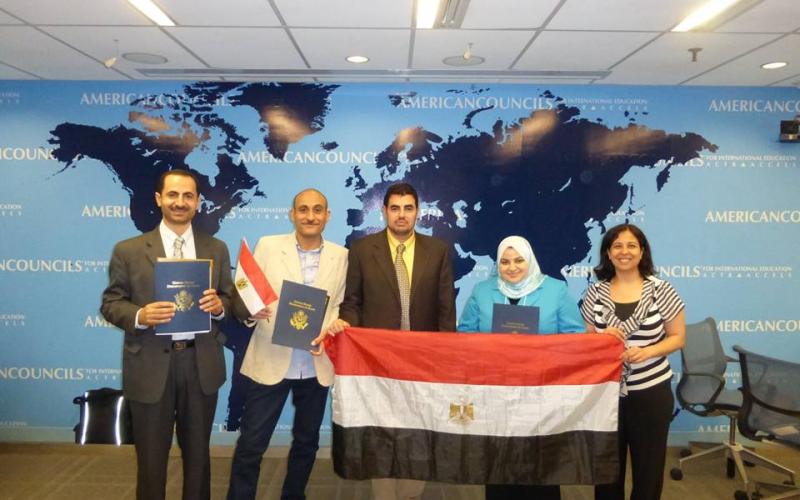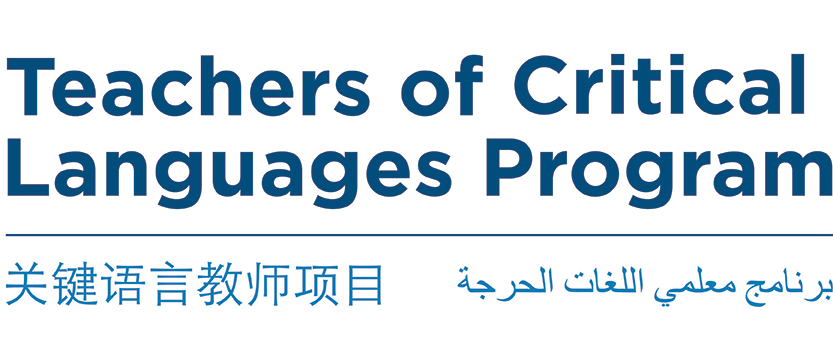
.
Asalamu Alaykom is how we say hello in Arabic. It means peace be upon you.
My name is Eman Bekheet , an Arabic TCLP Alumni teacher. I taught Arabic as a foreign language in The International High School of New Orleans, Louisiana. I’m from Alexandria, Egypt and I've been teaching English as a foreign language for six years. I was so keen on visiting the US to share my educational experience and enhance my teaching of language and cultural exchange.
It’s important to learn Arabic for so many reasons. There are 22 countries in the Middle East speaking Arabic as a common language. There are approximately 300,000,000 Arabic speakers worldwide, making Arabic the 5th most commonly spoken native language in the world. Arabic is the language of Islam. It’s a support for language courses from beginning to advanced levels, study abroad programs, intensive instruction opportunities, teacher exchanges, and professional development. Arabic-speaking nations are a fast growing market for trade. The Arab-speaking world has a rich cultural heritage, and learning Arabic can promote intercultural understanding.
Cultural integration is a key concept when it comes to language learning, as culture is the main gate to learn Arabic, Chinese or any other language for that matter. As an exchange teacher, I tried to use the Arab culture as a tool to excite and encourage my students. I used the culture to put a sparkle their eyes, as it's a perfect way to get to know more about their interests. This is also a great way to build trust filled and respectful relationships with students, as it allows you to get to know them, and shows them that you're interested in the same things that they are. We can also create an authentic atmosphere inside the classroom by bringing songs, movies or clothes. We, as teachers, can also look for a place where they can practice their newly learned language skills in a real life situation. I took my students to an Egyptian restaurant where they found Arabic speakers to communicate with and menus in Arabic to order from. Furthermore, cultural integration helps to correct the misconceptions, and lessens the gap between both cultures. I couldn't take my students to Egypt on a trip. however, I did have the ability to bring the Egyptian culture inside my classroom.
My journey to the US was full of adventures and discoveries. The most significant was one of self-discovery. I participated in many events in my school like fundraising events, pep rallies, assemblies, clothing drives ….etc. I went through a unique experience of co-teaching with other teachers like World History and Art. I taught the students how to greet in Arabic and some of the basic conversations even though they weren't enrolled in Arabic courses. These students practiced these conversations in the hallways and whenever they saw me. It’s great to be influential in the lives of students, and seeing the interest that those students had for my language and culture warmed my soul. I was so lucky to make many friends at school and have a good relationships with everyone. Creating such social networks made my experience more meaningful.
Any effective teacher should cooperate with the parents and families of the students. I was so lucky to have a group of parents who joined my Arabic classes for adults, which I taught as an outreach activity. If the parents learn a language, this will lead to language learning enhancement of the students. Being a TCLP Alumni, I am still part of this wonderful experience. I’m an Egyptian teacher with an American view of teaching and learning. TCLP helped me cultivate and clarify my teaching skills, and taught me how to be an educational and social leader wherever I go.
